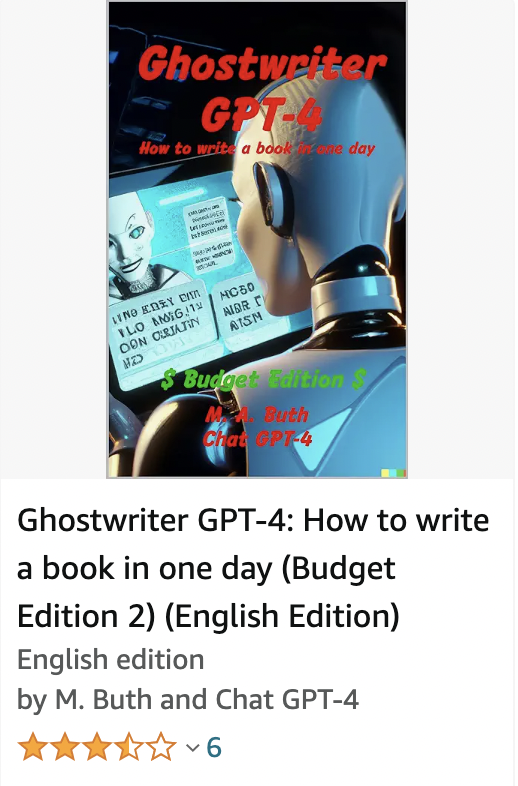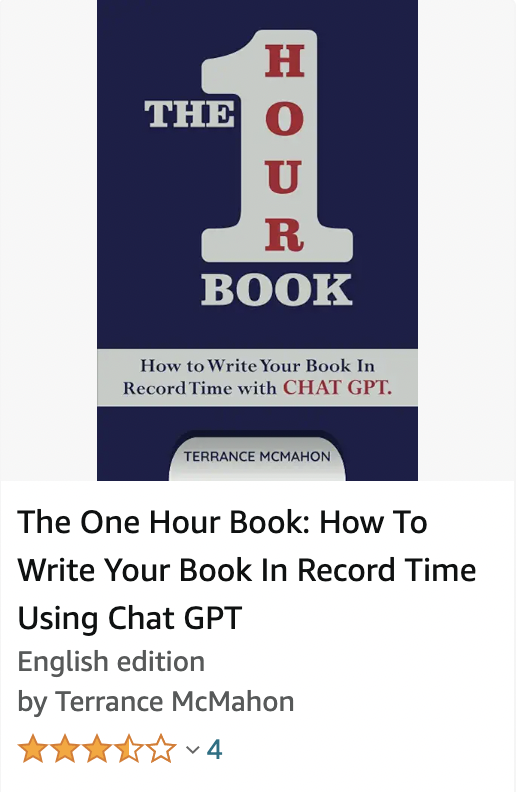In 2023, Jeff Besos and I developed eBook DDoS, a tool that creates short novels with random themes and authorship. It takes approximately 75 seconds to generate a layout pdf file of between 24 and 36 pages and a cover image. We want to share the source code and some reflections on the process with anyone who wants to use it to play with shitpublishing.
1
Our main goal was to produce thousands of books and upload them to Amazon to create a bit of chaos on the platform. At first, we considered publishing literary fakes like The Old Man and the Ocean by Ernesto Hellmanway, Offense and Sentence by Dr.Evsky, To Kill a Pigeon, The Great Xavi, One Thousand Years of Solitude, The Michelangelo Code, Infinite Gag, Ulisesio by Jamie Joy... Like the US film production company The Asylum, which produces films such as Transmorfers, Da Vinci's Treasure, Snakes on a Train, Paranormal Entity, or 30,000 Leagues Under the Sea, but in ebook version. An act of torrent poisoning like what was done in Emule or Ares, where torrents were uploaded with the names of new films, but when downloaded, you found something else (usually porn). Torrent poisoning was even also done by anti-piracy companies like Madonna's record label who, before the release of her album American Life, leaked tracks on torrent download sites that were the same length and file size as the actual album tracks but only contained a clip of Madonna saying "What the fuck do you think you're doing?" followed by minutes of silence. In response, someone hacked into Madonna's website and added a message to the homepage saying, "This is what the fuck do I think I'm doing," followed by download links for each of the songs on the album.
We originally wanted to make literary fakes by rewriting or adding a few chapters to famous works with ai. But upon reflection, we thought this was more of an attack on literature in general than on Amazon. So, we decided to pump out books from nothing with artificial intelligence and publish them on Amazon. This idea implied picking up the baton from Traumawien, the publishers who developed Kindle'voke's Ghost Writers, a project that turned YouTube commentaries into play scripts and serialized them on Amazon.
In addition to this threat hanging over Jeff's head while he was programming, a project like Kindle'voke Ghost Writers is not feasible at this point. I don't know if it's because of the Traumawien project or because of the boom of making easy money with low-content books on Amazon, but the platform has limited the number of publications an account can publish in a specific time. We have been allowed to publish five books. 🙁
To overcome this, we would have to manage thousands of Amazon accounts publishing simultaniously. However, as you can't sell your book at zero cost – you always have to charge something – the accounts must be associated with a bank account, making it exceedingly difficult to create and manage thousands of accounts at the same time.
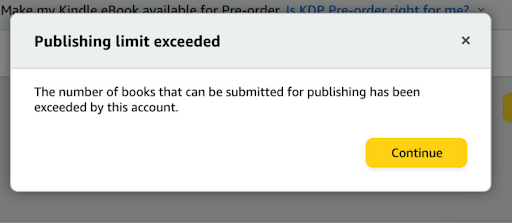
Because of all this – and, honestly, because we thought we would have time for everything in the Art Jove prize period, but we didn't – the code we are sharing comprises only the first part of eBook DDoS. It is a tool that allows you to create ready-to-publish books in an estimated time of 75 seconds, producing a layout pdf file and a cover image. We want to share this code so that it can be used by all the geeks who want to play with hyper-publishing and generative literature, hoping to upload their products to Amazon to fill up the platform with these low-content literary spam books.
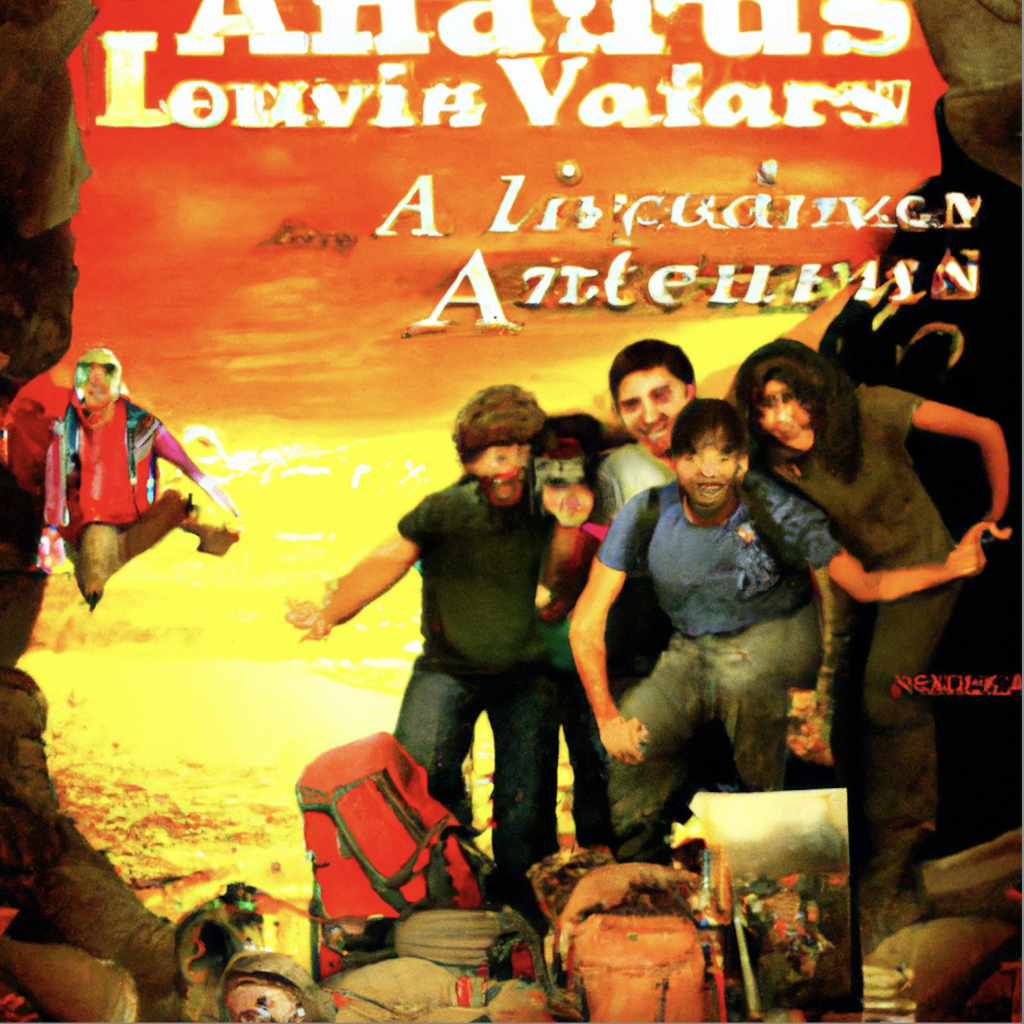
Example of ai generated book cover.

Mockup of ai generated book.
2
While working on creating a fast and efficient way to generate literary works with artificial intelligence, we discovered a fascinating phenomenon: a quick and easy way to become a millionaire selling books on Amazon without writing a single word! There are hundreds of videos on YouTube claiming that you can make an incredible monthly income just by creating and publishing low-content books on Amazon. Low-content books are generally publications (eBook or Print on Demand) with very little text, such as puzzle books, coloring books, notebooks, diaries, and so on. Their profitability comes from how little effort they are to make: it takes just a few minutes, and once done, all you have to do is wait for an innocent user to buy it.

The popularization of generative ai tools has been a bombshell for this business, and these YouTuber-coach-financial advisors are promoting their use to make books in the shortest time possible. Discovering this phenomenon of hyper-publishing, fast writing, and wealth promises raised many concerns for us. We, as artists, are proposing artistic games of automation and fast generation of books to challenge ideas of culture, creativity, value, and authorship. We are approaching the word and the book in its material dimension–weighing them, measuring them, thinking about the space (physical and digital) they occupy–while these YouTubers, solely out of a desire to get-rich-quick, are doing practically the same thing. In art and in “business,” we are using ai to generate books quickly, publishing in series on Amazon, automatizing the steps to make a narrative, and asking ourselves how gpt-3 can make the books longer and faster. Taking advantage of a bug either to attack and criticize or to sell and profit. Exploiting new markets before they are ‘regulated.’
Thanks to tools like gpt-3, low-content books are moving from being just coloring books and agendas to becoming children's stories, self-help books, erotic novels, photography, crochet or reiki manuals, recipe books, self-discovery journals, money-saving coursebooks or – in a fascinating self-referential exercise – guides on how to use ai. Among these self-publishers who aim to make money on Amazon, books are measured by the quantity and not by the quality of their content.
We also worked from this perspective, producing low-content literature and seeking the limit of readability and length for the texts to be considered publishable novels. The products generated are repetitive and generic narratives, which present plots that are immediately closed, ending each paragraph with an apparent lesson. Form overrides content, creating a literature of emptiness, a well-made shell, a structure of words that enclose nothingness.
Chapter 1. The magic of friendship in an unknown place. As the friends made their way to the airport, their laughter filled the air. It was as if fate had made them a promise of great things. They knew that no matter where the wind blew them, the adventure that awaited would be unforgettable.
Everyone was so excited that they couldn't stop talking, imagining all the different places they were going to travel to. Everyone had their own ideas and expectations, but they all agreed that the next few days would be incredible. When they arrived at the airport, their hearts skipped a beat as they saw the plane that would take them to their destination. They boarded with a mixture of emotions, a kind of anxiety and excitement for the adventure they were about to embark on.
During the flight, time seemed to fly through the skies. Once they landed, everyone was excited to see the place. No one knew what to expect, but they were ready for anything. The first thing they noticed was the warm, humid air, along with the golden sunlight streaming through the leaves. They looked at each other with a smile, knowing that what awaited them was something very special. As they explored the place, they felt as if they had entered a magical world. The nature was beautiful, but the real charm of this place came from the locals. They were always willing to help, and their friendliness was infectious.
The friends felt like part of the family as if they had been there forever. Everyone felt so close as if the bond between them had been effortlessly cemented. For the next few days, they enjoyed all the adventures and experiences they had to offer. Every morning they woke up with a smile on their faces, knowing that something incredible awaited them. Not only did they see incredible sights, but they also discovered something deeper that had not been there before: the true meaning of friendship.
They all realized that it didn't matter where they were going, but with whom. Although fate would bring them new landscapes and adventures, what would never change was the friendship they had formed. As they prepared to return, they all realized that they had discovered a treasure far more precious than anything they had encountered along the way. They knew that no matter where they went, they would always carry this experience with them. Leaving this place, the friends looked back wistfully, aware that it was not just a place, but a part of them. They had discovered the magic of friendship in an unknown place and were ready to live their next adventure together.
3
When we started the project, ai-generated books were already an area of concern for Amazon. We were in the time gap between the creation of the market and its ‘regulation’ – a time when hackers and traders flourish. Exploring the world of low-content self-publishers and ai, we found several videos and articles that discussed the boom of ai-generated content self-publishing.

Among stories of successful sales and anonymous people who had fulfilled their dream of becoming writers, I found many articles about Amazon's reticence, fears, and problems with this flood of accelerated and hardly categorizable books. These AI-generated dull novels, lousy translations, and bizarre children's stories seeped into the bestseller list, probably thanks to bot-farming tactics. Besides these problems in ranking quality books, Amazon needed to deal with unintentional plagiarism conflicts in ai-generated texts derived from this shitpublishing avalanche.


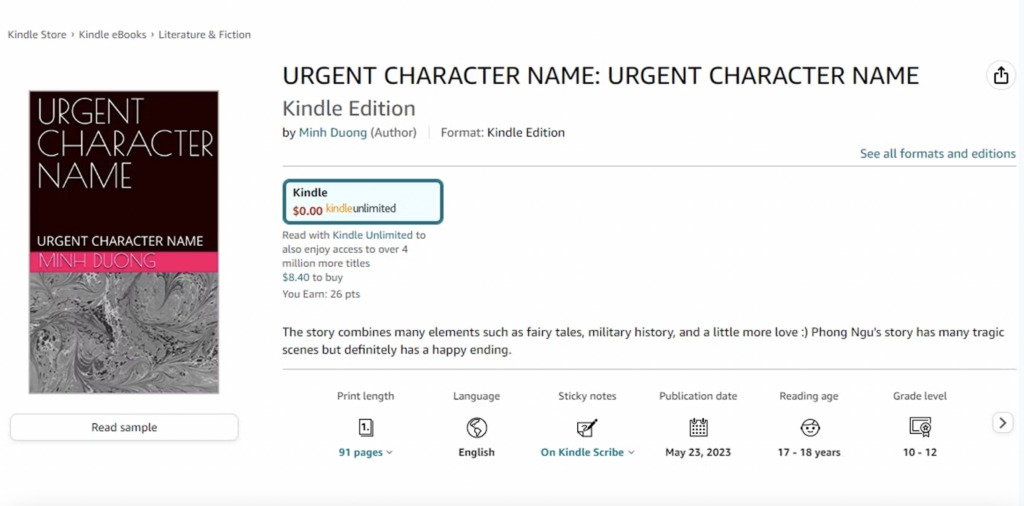

Our goal of flooding Amazon with ebook spam has been achieved despite us and with far greater repercussions than expected. Looking for a way to make money or become a writer, thousands of people are already flooding Amazon with low-content literature that promises to turn Amazon into a dumping ground for quick self-publishing and low-quality books, only looking to hook some clueless buyer. There was no need for hacker publishing experimentation to flood Amazon with junk. The goal of the project had been accomplished before we even began to think about it.
4
By September 2023, when we were publishing the last books generated by our software on Amazon, something had changed. In the submission forms for Amazon Kindle Direct Publishing, a new section was included, asking if you have used ai tools to create the texts, images, or translations in the book you are about to publish.
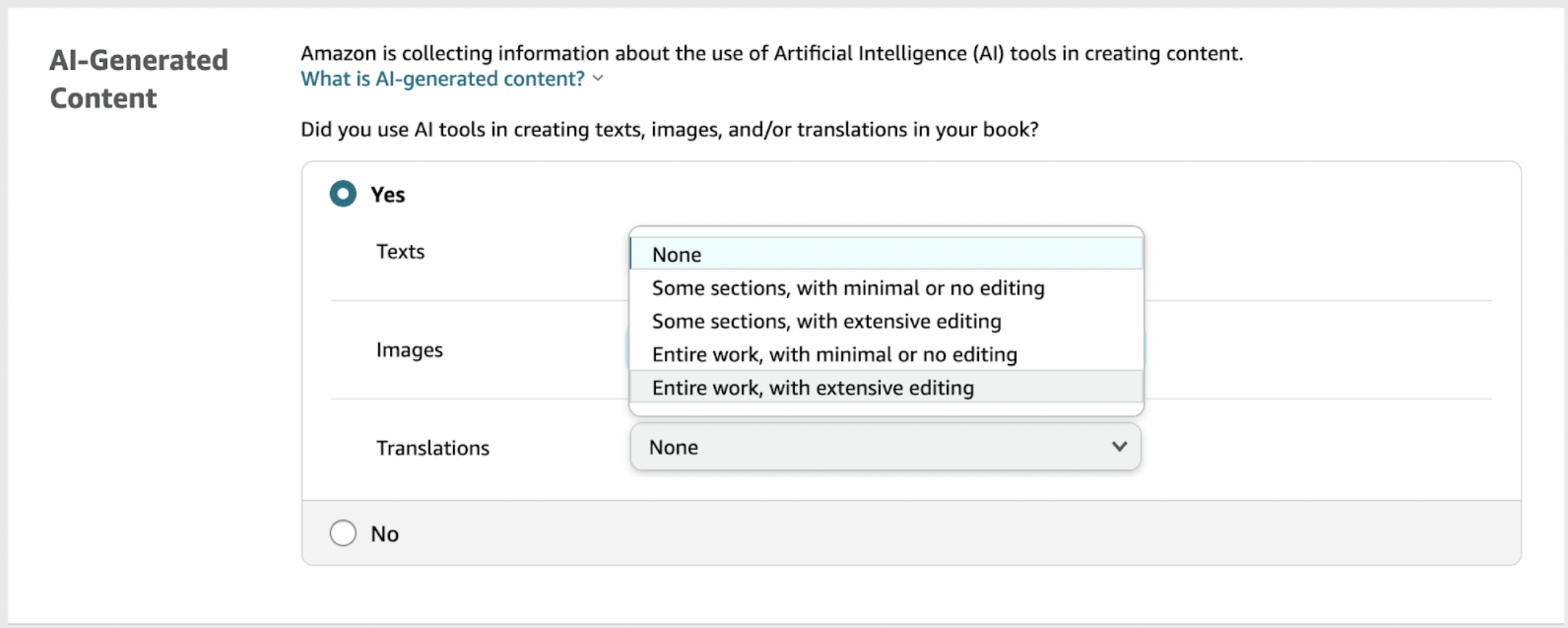
Amazon has started to regulate ai-generated content in their publications in an effort to navigate the flooding of their servers. Does it mean that the project has been a success? I don’t know. From the beginning, we knew this hacking act was more of a trolling game than a real attack on Amazon, but still, Amazon now has to deal with an avalanche of junk books. It won’t mean the end of the Amazon empire, but it is a nuisance for the company. At least we have that.

5
As artists, we must ask ourselves about the aesthetic potential of low-content literature. On a personal level, these books have sincerely made us laugh and have given us an incredible sense of the ability to write without saying anything and plenty of ideas to go on. Beyond this spam publishing intervention on Amazon, we can consider the content of low-content literature, which reminds me of Chuck Tingle and his self-publishing on Amazon of site-specific literary works that conjugate gesture and content in delirious works of surreal gay erotica. The possibilities of ai and low-content literature for fanfiction and copypastas also come to mind. As we read the books we had produced, it seemed that the main body of stories and short narrative examples with which gpt-3 had been trained were fanfiction, blog writing, and internet copypastas. Some of the books looked like genuine teenage fanfiction posts or incel community testimonials. If this is so, gpt-3 might not work for making literary classics, but it does for making copypastas and bizarre fanfiction. At least we know that it serves to generate stories in which y/n is friends with Harry Potter, Ron, and Hermione, and together they have magical adventures in which Harry falls in love with y/n, and they end up kissing under the magical mistletoe in the Room of Requirement. And that’s not insignificant.

This text was originally published in Spanish on eBook DDoS (2023). Art Jove. The pdf version is available here.
Special thanks to Candela Cubria-Franco for her translation assistance.
Ezequiel Soriano is an anthropologist and artist. He works about the internet, folklore, and appropriation through ethnography, artistic experimentation, and post-digital publishing. He manages the publishing lab Artefactos Nativos, and he is currently a PhD researcher at Mediaccions (UOC) and a member of Radial Radiant Collective (Barcelona).

